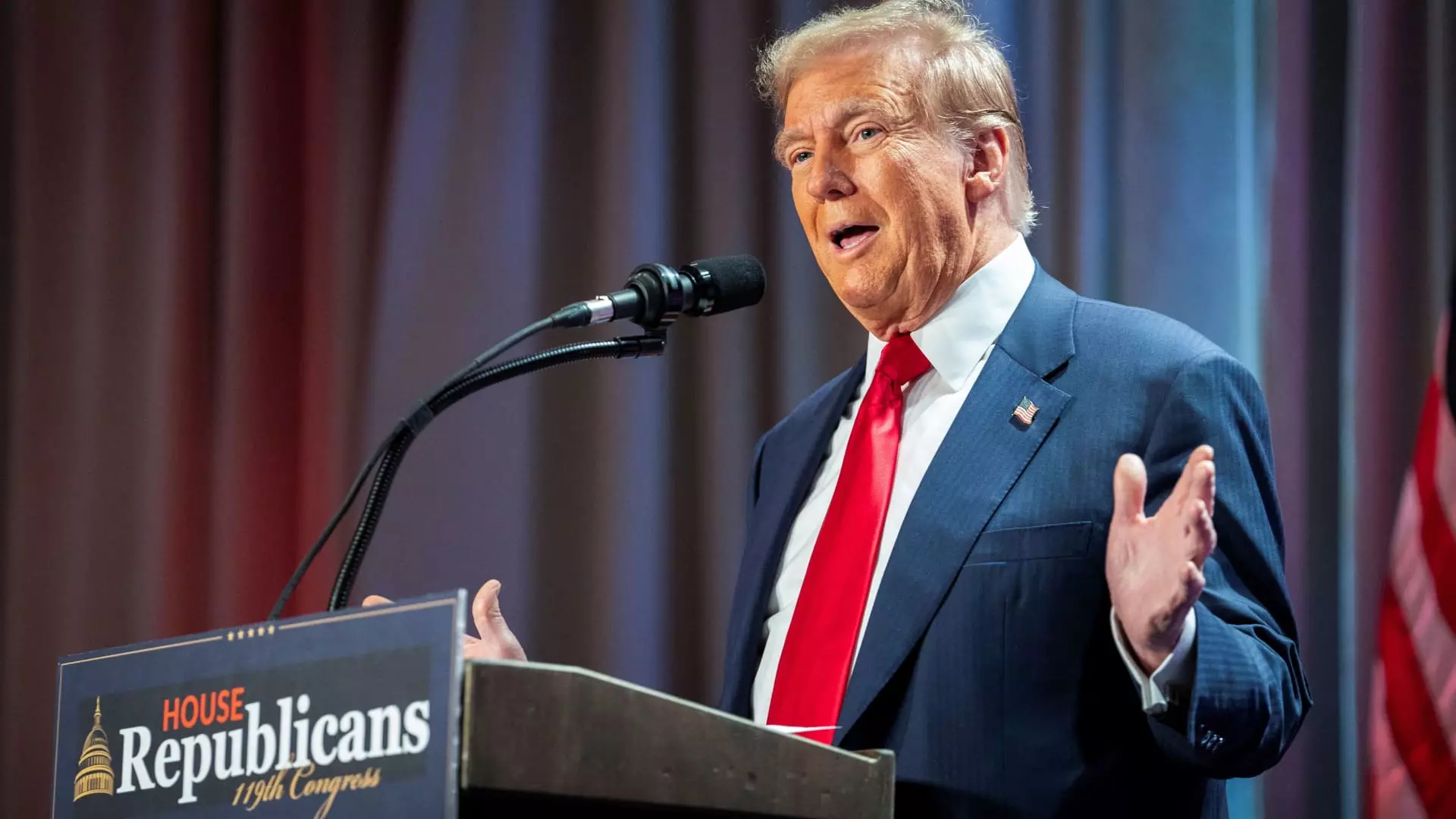The imminent appointment of Chris Wright as the head of the Department of Energy (DOE) under President-elect Donald Trump signifies a pivotal shift in U.S. energy policy. Wright, whose professional background is steeped in the fossil fuel industry, particularly as the founder and CEO of Liberty Energy, is expected to steer the DOE towards a more traditional energy trajectory. This decision has sparked considerable debate regarding its implications for both domestic energy production and global climate initiatives.
Chris Wright’s avowed support for fossil fuel production is emblematic of an administration set to prioritize traditional energy sources over alternative ones. With a remarkable history in oil and gas, he has demonstrated unwavering confidence in the capacity of fossil fuels to eliminate poverty and fuel growth. Critics, however, are quick to note that such a stance may neglect the pressing evidence surrounding climate change. Wright’s characterization of climate activists as “alarmists” and his controversial comparisons of energy policy strategies to Soviet communism raise important questions about his approach to energy governance.
Wright’s public statements reflect a dismissive attitude towards global climate concerns, which starkly contrasts with the increasing urgency for action on climate change. This perspective reflects a broader trend among certain political spheres that view climate science with skepticism. By choosing Wright, the Trump administration sends a message prioritizing fossil fuel expansion, potentially sidelining initiatives that promote renewable energy.
While Wright lacks prior political experience, his significant role in the oil and gas sphere raises questions about the qualifications necessary for leading a critical governmental department. The DOE oversees not only energy efficiency and research but also energy diplomacy and the management of the U.S. Strategic Petroleum Reserve. Given the current context of rising electricity demands driven by technological advancements, the extent to which a predominantly oil-driven agenda can effectively meet these evolving needs remains to be seen.
Wright’s leadership could usher in a renewed focus on increasing oil and gas production, which aligns with Trump’s agenda. Nevertheless, it poses a challenge: can traditional energy sources adequately cater to the surging demand tied to emerging technologies like artificial intelligence and electric vehicles? The DOE’s potential pivot towards fossil fuels raises a fundamental question about sustainability and energy innovation, particularly as the world grapples with the harsh realities of climate change.
Challenges Ahead: Balancing Legacies and Innovations
As Wright steps into this role, he faces a multitude of challenges. The most pressing issue is how to reconcile the burgeoning need for energy with the environmental implications of increased fossil fuel production. The U.S. currently boasts unprecedented levels of oil output, yet the future remains uncertain as private companies largely dictate drilling activities. Wright will need to navigate the complex landscape of energy production: promoting fossil fuels while simultaneously addressing demands for cleaner energy technologies.
Moreover, his predecessor, Jennifer Granholm, championed electric vehicles and renewables, setting a stark contrast to Wright’s anticipated agenda. This juxtaposition emphasizes the broader ideological divide regarding energy policy in the United States. Questions regarding the future of energy transition, and whether it can include investments and innovations in cleaner technologies while still relying heavily on fossil fuels, loom large.
In an era marked by rapid technological change and growing environmental awareness, the outlook for energy policy in the U.S. hangs in a delicate balance. Wright’s impending confirmation could signify a retrenchment from the progressive energy initiatives that many advocates hoped would solidify under previous administrations. As energy demands swell with the rise of new industries, a unified and forward-thinking energy strategy that incorporates diverse sources while considering climate imperatives becomes increasingly vital.
Ultimately, Chris Wright’s appointment embodies a crossroads in U.S. energy policy. It poses an essential inquiry: can the nation simultaneously pursue fossil fuel expansion and the global responsibility to combat climate change? The upcoming chapters in this narrative will reveal whether Wright’s ideology can adapt to the complex realities of an evolving energy landscape, or whether it will be seen as a step backward in a crucial moment for sustainable progress.


Leave a Reply